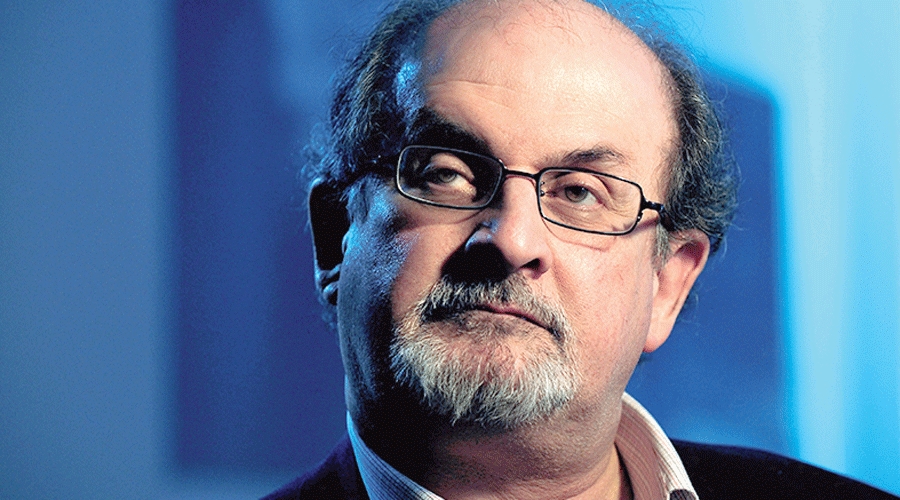India on Thursday broke its silence on the attack on author Salman Rushdie in New York on August 12, which had drawn responses from several governments.
Asked for a response, considering the novelist was born in India, external affairs ministry spokesperson Arindam Bagchi said: “India has always stood against violence and extremism. We condemn this horrific attack on Salman Rushdie and we wish him a speedy recovery.”
Before giving the brief response to the stabbing, Bagchi referred to a remark made by external affairs minister S. Jaishankar in Bangalore a day after the attack.
Asked about the attack at an interactive session, Jaishankar had said: “I have also read about the attack. I was busy in my own programme. I also saw that and I think obviously that is something which the whole world has noted. Any attack like this, obviously, the entire world has reacted.’’
India’s muted response had not gone unnoticed. The Guardian newspaper wrote on August 13: “India was the first country to impose a ban on The Satanic Verses in 1988. There has been no statement from the Indian government or the main opposition, the Congress party. The Congress party was in power when the book came out and quickly decided to ban it.…’’
DYFI protest
But the DYFI, the CPM’s youth wing, had taken the lead in protesting the attack, holding an event before the statue of a firebrand journalist in Kerala who had gone to jail during the colonial era for the uncompromising manner in which he wielded the pen.
Later, in a separate initiative, a statement condemning the attack on Rushdie was endorsed by more than 80 writers, filmmakers and artists.
Soon after the stabbing, the DYFI protested in Thiruvananthapuram before the statue of Swadeshabhimani Ramakrishna Pillai, the editor who was exiled for writing against the rule of the British and the erstwhile princely state of Travancore.
“The venue was chosen to make a point,” DYFI Thiruvananthapuram district secretary Shijukhan P. told The Telegraph.
Shijukhan said the protest was held to convey strong opposition to all extremist ideologies that try to attack and deny free speech.
Speaking at the protest, Shijukhan said: “If these attackers think they can eliminate with their swords someone who uses a pen, they will have to face thousands of such writers. Let me remind you that neither writers nor writing will ever stop.”
He added: “What wrong did Salman Rushdie commit? Do these attackers think they can take on with a sword a writer who uses his pen? The mightiest weapon in the world is the pen.”
Shijukhan likened the attack on Rushdie to the murders in India of rationalists and writers who have been critical of the Hindutva ideology and majoritarianism.
“We strongly oppose the attack on free speech and killing of rationalists, writers and journalists such as M.M. Kalburgi, Govind Pansare, Gauri Lankesh and Narendra Dabholkar,” he said.
Thiruvananthapuram district DYFI committee member Gayathri Babu read out excerpts from Rushdie’s Booker Prize-winning novel Midnight’s Children at the event.
The Thrissur-based Chinta Ravindran Foundation also condemned the attack on Rushdie.
“The attack on Salman Rushdie, who is a man of peace, and dealing only in words, is yet another example of the violent intolerance of dissent that is dangerously gaining momentum. We think, it is the need of the hour for writers, artists, art lovers and readers to protest against this dastardly act and its dangerous implications,” the statement read.
The signatories to the statement include authors M.T. Vasudevan Nair, Anand, Zacharia, N.S. Madhavan and M. Mukundan, poet K. Satchithanandan, filmmakers Adoor Gopalakrishnan and Shaji N. Karun, veteran journalists T.J.S. George and Shashi Kumar, scholars and commentators M.N. Karasseri and Sunil P. Elayidom and actor Joy Mathew.










